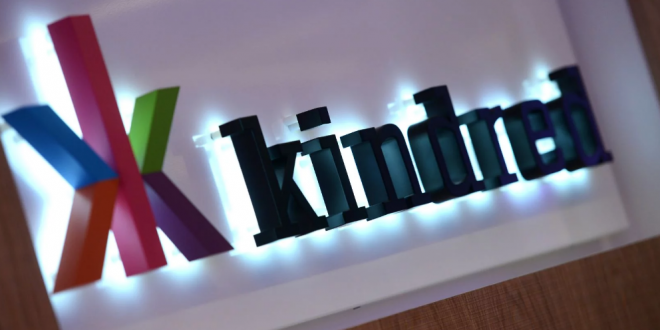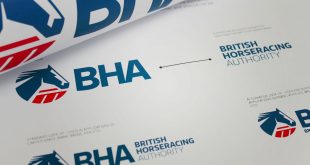The debate around affordability checks has been an intense conversation throughout the overhaul of Britain’s gambling legislation, which the UK government hopes to update for the digital age.
April’s White Paper, which brought an end to an over two year review of the 2005 Gambling Act, recommended ‘finance risk checks’ as the ideal affordability solution. Kindred’s Head of Corporate Affairs UK/Global, Tom Banks, informed SBC that some more ‘ironing out’ is required.
The devil in the financial details
“We contributed to the consultation and gave our views and our experience from rolling out an affordability framework over the last two years,” Banks told SBC following the conclusion of the first round of UK Gambling Commission (UKGC) and DCMS consultations. 
“I think the Commission and the government have definitely heard some of the concerns. As a sector, we feel – certainly from a Kindred perspective – we have seen some positive engagement from the Commission over the last month or so in terms of wanting to get this right.”
The main question that remains is, how exactly can operators and the Commission get this right? And with all the talk around frictionless affordability checks, how realistically can these be achieved?
Credit reference agencies Kindred has engaged with are confident they can produce a frictionless check, Banks explained. That is not to say that all the ‘devil in the details’ has been covered, but the confidence is there.
From the operators standpoint, Kindred’s main area of concern relates to customer personal details, such as occupation, postcodes and personal revenue streams, information which in Banks view ‘isn’t necessarily required’.
The technology is one its way there, and Kindred for one intends to continue working with credit reference agencies to map out the finer details into how a check would work. The next step would then be to see how a check would actually function in practice.
“It is possible but there is still a lot of work to be done to get this right,” Banks said. “A key part of it is that it has to be piloted. We have to test it and see whether the reality meets what we’re hoping for when it hits customers. We’re really ambitious about it, and so are other people involved, but there is still quite a bit to go in terms of getting it right.”
The risk of problems
For the government, bringing gambling regulation in line with an ever-more digitising environment and industry has been the core objective.
Whilst operators have been onboard with this throughout the review, there has been one huge overarching factor for Britain’s bookmakers to consider – that being the customer experience.
Again, the main challenge and issue operators will likely face in this regard is when customers are asked to provide certain personal information. Banks reiterated that an affordability check which causes friction will ultimately interfere with customers who want a smooth journey.
He continued: “We have to make sure that the customer experience is paramount on this and that’s where the frictionless thing comes in. We do experience that at the moment, albeit on a smaller scale and this is where this being implemented properly and in a proper frictionless way is so vital.
“We risk further problems with what is ultimately a good idea in principle, to make sure people remain safe – we don’t want to throw out the baby with the bathwater.”
The consequences of this can be twofold. Firstly, customers coming to betting sites will be faced with questions regarding documentation and affordability they may not feel comfortable answering. Dissatisfaction with this has already been noted, with Banks referencing the petition initiated by Nevin Truesdale, Chief Executive of The Jockey Club
Customer satisfaction can have a subsequent knock on effect, one that many operators have been warning about throughout the course of the Gambling Act review – that friction in the customer journey could push bettors towards unregulated offerings.
Customers seeking a smooth journey ‘can unfortunately find that elsewhere’, Banks remarked: “We risk pushing customers to places where there’s fewer checks, fewer safe products and approaches, and that is obviously in the unlicensed operators.
“I know people often think we play that up, but we know from experience that we have some customers who will stay with us for certain products, but tell us readily that they have gone to other operators not in the licenced market for other products because they’re just getting a better experience.”
A missed opportunity?
The fact that, as Banks noted, customers prefer different products and services poses another problem regarding player protection and the effective implementation of affordability checks.
In theory, once a customer surpasses the one of the suggested thresholds, such as £125 a month as proposed in the April White Paper, they could simply begin betting with a different account with a different operator.
Some such as GamCare have called for a threshold of a blanket £1,000 threshold loss limit across all accounts. Adopting such a measure has a challenge to overcome, however, that being how operators share financial data. As with other documentation related to customer finances, this might not be well received by some.
“That is a fair concern to raise thinking in terms of how risk checks will work in reality,” Banks reflected. “The idea that people will have multiple accounts, we know that that’s the case of lots of customers who like to play one product with one and one with another. 
“People like our horse racing offer on Unibet for example, but may play casino elsewhere and vice versa, people like 32Red casino, but they may use a sportsbook elsewhere.
“Obviously there is the single customer view pilot going on. At the moment that is very targeted at quite specific health and high levels of harm to customers. The scope does not include financial data being shared, and I would have thought that if we want to go down the route of sharing spend data among operators that would require a significant piece of work.”
It is often stated that the UK government and gambling stakeholders have a chance to define the regulatory future of the country’s gambling sector, how problem gambling is approached and treated and how player protection is handled.
What is important during this process is not to miss opportunities – something Banks believes the government’s plans for slot stake limits may have done, especially relating to the products’ connection to finance risk checks.
For the online sector, finance risk checks present an opportunity to gain a ‘detailed picture’ of the financial risks facing customers and the ability to monitor behaviour, but in the case of a slots a ‘blanket ban’ will be adopted.
Banks explained: “What we’ve been working on at Kindred, and at 32Red in particular, is a dynamic stake limit model where different players will see different staking options depending on where they are in their affordability.
“Where we think there’s been a missed opportunity here is that the technology with the ability to do this dynamically is actually available. We presented that multiple times to them (the UKGC/government) but it was always going to be slightly more difficult politically.
The missed opportunity Banks’ refers to here is the chance to link together two important pieces of the legislative overhaul – the finance risk check with the safe operation of slots – to ensure people play within their own limit across all products and levels of personal finance.
“It would have required a different piece of legislation, but because it was easier to just do a blanket ban that doesn’t necessarily mean that it’s the right thing to do,” Banks remarked.
The groundwork and the future
Kindred has publicly placed safer gambling and social responsibility at the forefront of its operations in recent years. The group’s commitment to achieve net zero revenue from harmful gambling has caught particular attention.
This has also included, as Banks explained, investment and research into technology. Again referencing the UKGC’s goal of a single customer view and gaining insight into player behaviour, Banks reiterated what work operators have done in this area.
“What’s really important is that we don’t lose sight of the work that operators already do around overarching harm protection,” he said.
“We can obviously have the frictionless check which will give us a really good picture of someone’s finances, but where we see huge value in things like AI and data is around the harm prevention systems in terms of behaviour.”
A good job is being done – but what is key for the industry is to move ‘further away from reacting to behaviour to predicting it’, something which Banks believes the industry is on track to achieve.
Ultimately, the Kindred executive consistently emphasised that operators, regulators and other stakeholders in reform have all shared the same ambition when it comes to finance risk checks, which is ultimately for the measures to be effective at protecting players but also frictionless.
However, more details still need ironing out and the enormity of the task cannot be understated.
Banks pointed out that this is the first time, even for experienced credit ratings agencies, that such a product has been developed, and as such he would “be surprised if even by this time next year we’re in a position where we can press the button where we’re rolling this out”.
To hear Tom Banks’ take on socially responsible marketing at SBC’s recent Player Protection Day, click HERE
And stay tuned to SBC News for another breakdown from Kindred’s Head of Corporate Affairs UK/Global on the company’s engagement with consultations









